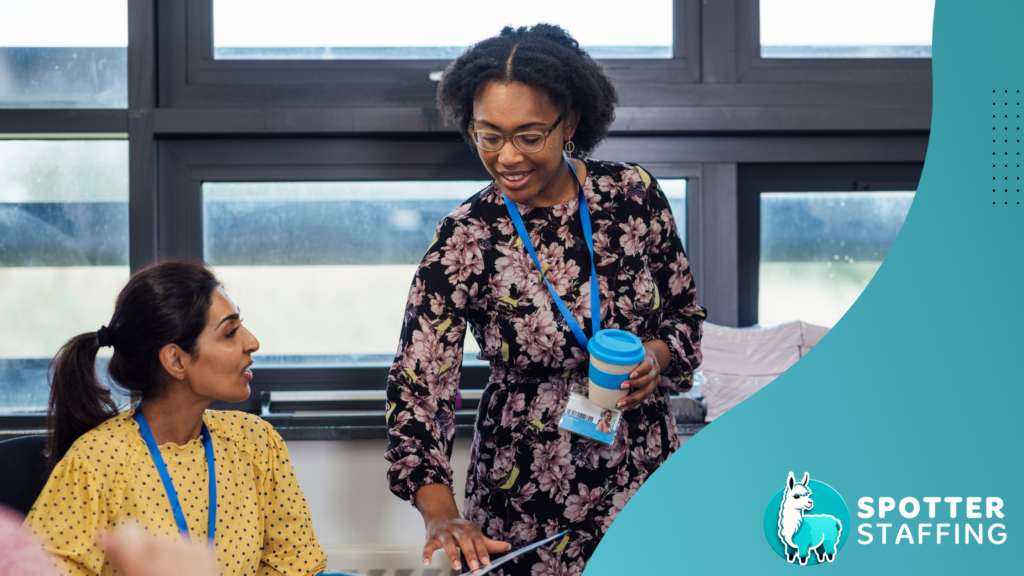Collaboration between speech-language pathologists (SLPs) and teachers is not just beneficial for students —it’s essential for maximizing their success. By working together, you can create a support system that addresses the diverse needs of students, fostering an environment where every child has the opportunity to thrive.
Understanding the Roles
SLPs and teachers each bring unique expertise to the table. Teachers are well-versed in curriculum content and classroom management, while SLPs specialize in communication disorders, language development, and related interventions. By understanding and respecting each other’s roles, you can complement one another, and help give students that holistic support they deserve.
Building a Collaborative Relationship
Effective collaboration starts with open communication. Regular meetings between SLPs and teachers can help identify students’ specific needs and track their progress. These meetings provide a platform to share observations, discuss strategies, and adjust interventions. Establishing clear communication channels, whether through face-to-face meetings, emails, or shared digital platforms, can enhance coordination and make sure everyone is on the same page.
Integrating Interventions into the Classroom
One of the most significant advantages of collaboration is the integration of speech and language interventions in the classroom. When SLPs and teachers work together, they can design activities that align with their curriculum while addressing speech and language goals. For example, an SLP might suggest modifications to a reading lesson to support a student with language processing difficulties. This integration not only makes interventions more relevant and practical but also helps students apply their skills in real-world contexts.
Professional Development and Shared Learning
Collaboration also offers opportunities for professional growth. Teachers can gain insights into speech and language development, learning strategies to support students with communication challenges. SLPs can learn more about curriculum demands and classroom dynamics, allowing them to better tailor their own interventions. Schools can facilitate this shared learning through joint professional development sessions, workshops, and collaborative training programs.
Celebrating Successes Together
Celebrating successes—no matter how small—can strengthen the collaborative relationship and boost morale. Recognizing the progress of students, whether through improved communication skills or academic achievements, reinforces the value of teamwork. These celebrations can also serve as reminders of the positive impact collaboration has on student success.
Are You Looking For a Better SLP Career?
Spotter Staffing is hiring Speech-Language Pathologists for top schools in the Chicago and Dallas-Fort Worth areas. Click here to browse our current open positions, or connect with a recruiter today for a free resume review and job interview guidance. We would love for you to find a job through Spotter Staffing and “Join The Herd” today!


